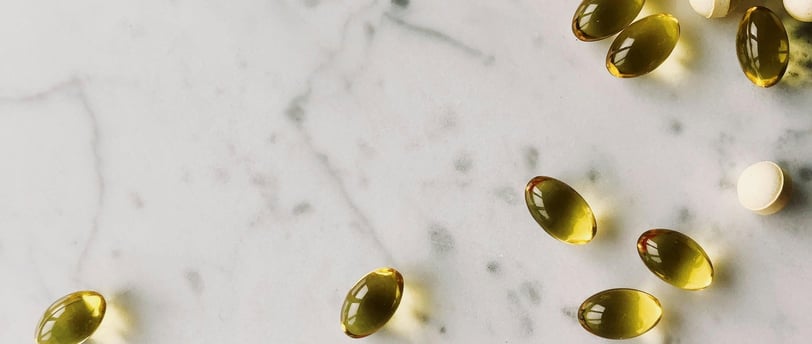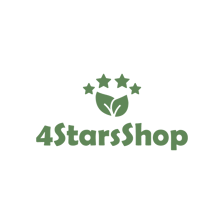The Essential Mineral You Didn’t Know You Needed
the importance of Zinc
BLOG
2/12/20255 min read


The Essential Mineral You Didn’t Know You Needed
Zinc is often overlooked in discussions about health and nutrition, overshadowed by more talked-about nutrients like vitamin C or calcium. But make no mistake – zinc is a powerhouse mineral that plays a crucial role in keeping your body in top shape. From bolstering your immune system to promoting healthy skin and even improving fertility, zinc is truly a miracle mineral. Let's dive deep into the world of zinc, explore its benefits, signs of deficiency, and how to ensure you’re getting enough in your diet.
Why Zinc Is Essential for Your Health
Zinc is classified as an essential trace mineral, which means your body needs it to function properly but can’t produce it on its own. You must get zinc through your diet or supplements. Despite its trace status, zinc has a monumental impact on various bodily functions.
Here are some of the major roles zinc plays in your health:
1. Boosts Your Immune System
Zinc is a critical player in immune function. It helps your immune cells combat infections, making it essential for warding off colds, flu, and other illnesses. Research shows that zinc supplementation can reduce the duration and severity of the common cold.
2. Promotes Healthy Skin
Your skin loves zinc. This mineral plays a vital role in wound healing and managing inflammatory conditions like acne or eczema. It’s no surprise that zinc-based creams are commonly used to treat diaper rash, sunburn, and minor skin irritations.
3. Aids in Cell Growth and Repair
Zinc is involved in cell growth and repair, which are crucial processes for maintaining healthy tissues and organs. This is particularly important for children and teens, as zinc supports growth during these critical developmental stages.
4. Supports Reproductive Health
For men, zinc is especially important for sperm production and testosterone regulation. Low zinc levels can impair fertility and affect libido. Women, too, benefit from zinc, particularly during pregnancy, as it’s vital for fetal development.
5. Balances Blood Sugar Levels
Zinc plays a role in insulin production and sensitivity, making it an important nutrient for people with diabetes or those at risk of developing it. Proper zinc levels can help regulate blood sugar levels and reduce the risk of complications.
Signs of Zinc Deficiency
Despite its importance, many people don’t get enough zinc. A zinc deficiency can lead to a variety of health issues, ranging from mild to severe. Here are some common symptoms to watch out for:
Frequent Illness: A weakened immune system makes you more prone to infections.
Delayed Wound Healing: Cuts and scrapes take longer to heal when zinc levels are low.
Hair Loss: Thinning hair can be an indicator of a zinc deficiency.
White Spots on Nails: These subtle white spots on your nails can signal a lack of zinc.
Weakened Sense of Smell or Taste: Zinc is involved in maintaining your sense of smell and taste, and a deficiency can dull these senses.
Skin Issues: Dry, flaky skin, or conditions like acne and eczema can worsen with low zinc levels.
If you notice these signs, it’s worth examining your diet and considering zinc-rich foods or supplements.
How Much Zinc Do You Need?
The recommended daily allowance (RDA) for zinc varies based on age, gender, and life stage:
Men: 11 mg per day
Women: 8 mg per day
Pregnant Women: 11 mg per day
Breastfeeding Women: 12 mg per day
Consuming more than 40 mg of zinc per day can lead to adverse effects, such as nausea, headaches, and a weakened immune system. Moderation is key.
Zinc-Rich Foods to Add to Your Diet
The best way to ensure you’re getting enough zinc is by eating a well-balanced diet that includes zinc-rich foods. Here are some excellent sources:
Animal-Based Foods
Red Meat: Beef, lamb, and pork are among the best sources of zinc.
Poultry: Chicken and turkey contain moderate amounts of zinc.
Fish: Oysters are the king of zinc, containing more per serving than any other food. Other good options include crab, lobster, and salmon.
Eggs: While not as zinc-packed as meat or shellfish, eggs still contribute a decent amount.
Plant-Based Foods
Nuts and Seeds: Cashews, almonds, sunflower seeds, and pumpkin seeds are excellent plant-based sources of zinc.
Legumes: Chickpeas, lentils, and black beans are great for vegetarians looking to up their zinc intake.
Whole Grains: Brown rice, quinoa, and oatmeal provide small amounts of zinc.
Fortified Foods: Some cereals and plant-based milks are fortified with zinc.
Zinc Supplements: Should You Take Them?
While it’s best to get nutrients from food, zinc supplements can help fill the gap if you’re not meeting your daily requirements. Zinc is available in various forms, such as zinc gluconate, zinc acetate, and zinc sulfate.
When to Consider Supplements
If you’re vegan or vegetarian, as plant-based sources of zinc are less bioavailable.
If you have a medical condition like Crohn’s disease or celiac disease that affects nutrient absorption.
If you’re pregnant or breastfeeding and have higher zinc requirements.
Always consult a healthcare provider before starting any supplement regimen to ensure it’s safe and appropriate for your needs.
The Risks of Too Much Zinc
While zinc is essential, more isn’t always better. Excessive zinc intake can lead to side effects, including:
Nausea and Vomiting: Overloading on zinc supplements can upset your stomach.
Copper Deficiency: High levels of zinc can interfere with copper absorption, leading to anemia and other issues.
Weakened Immunity: Paradoxically, too much zinc can harm your immune system.
Stick to the recommended daily allowance unless advised otherwise by a healthcare professional.
Zinc’s Role in Preventing and Treating Illness
Zinc doesn’t just help you avoid getting sick; it’s also an effective treatment for certain conditions. For instance, zinc lozenges are a popular remedy for the common cold. Studies suggest they can shorten the duration of colds when taken at the first sign of symptoms.
Additionally, zinc has been studied for its potential role in treating:
Diabetes: By improving insulin sensitivity and glucose control.
Age-Related Macular Degeneration (AMD): Zinc supplements may slow the progression of this eye disease.
Acne: Topical and oral zinc have been shown to reduce acne severity.
Tips for Optimizing Zinc Absorption
To make the most of your zinc intake, keep these tips in mind:
Pair with Protein: Foods rich in protein, like meat and beans, can enhance zinc absorption.
Avoid Excessive Iron or Calcium: These minerals can compete with zinc for absorption in the body.
Soak or Sprout Grains and Legumes: This reduces phytates, compounds that can inhibit zinc absorption.
Spread Out Your Intake: The body absorbs smaller doses of zinc more efficiently than large ones.
Final Thoughts: Zinc for a Healthy, Happy You
Zinc may not get the attention it deserves, but this essential mineral is a game-changer for your overall health. From boosting your immune system to promoting skin health, balancing blood sugar levels, and supporting reproductive health, zinc is a nutrient you can’t afford to ignore.
If you’re noticing signs of deficiency, like frequent illness, hair loss, or slow wound healing, it’s time to evaluate your diet and consider adding zinc-rich foods or supplements. Remember, a little zinc goes a long way in keeping your body functioning at its best.
So next time you’re at the grocery store, stock up on foods like red meat, fish, nuts, and whole grains. Your body will thank you! After all, a healthy body is a happy body. Stay well, and show your body some love with a boost of zinc today!
